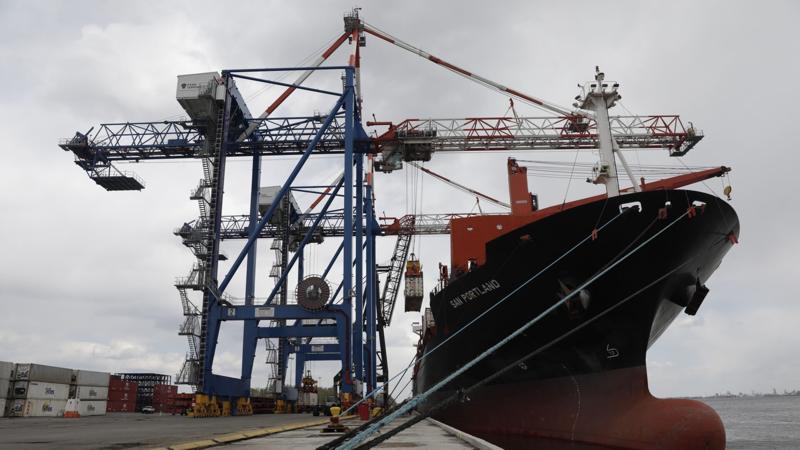About 45,000 dockworkers are expected to strike for higher wages across three dozen East and Gulf coast ports at 12:01 a.m. Tuesday.
There is potential for increased consumer costs on a wide range of goods just five weeks before Election Day, and 12 weeks before Christmas.
Negotiations have been tense since June. The disagreement is between the International Longshore Association and Warehouse Union, which represents port workers across the country, and the U.S. Maritime Alliance, which represents terminal operators and ocean carriers.
Wages of East and Gulf coast workers are a base wage of $39 an hour after six years. The union is asking for a 77% pay raise increase over six years. It is also asking for more restrictions and bans on the automation of cranes, gates, and container movements used to load or unload cargo.
North America’s largest union of maritime workers has 85,000 longshoremen from the Atlantic and Gulf coasts, according to its website.
The strike would impact 36 U.S. ports handling about one-half of U.S. ocean imports. Included are Boston, New York, New Jersey and Philadelphia.
While negotiations have remained stagnant, both parties have continued to push out updates on the situations.
“Despite additional attempts by USMX to engage with the ILA and resume bargaining, we have been unable to schedule a meeting to continue negotiations on a new Master Contract,” the Maritime Alliance said in a release. “We remain prepared to bargain at any time, but both sides must come to the table if we are going to reach a deal, and there is no indication that the ILA is interested in negotiating at this time.”
The alliance filed an “unfair labor practice” charge against the union on Wednesday.
The union said the employer is “continuing its weak publicity campaign designed to fool the American public that they care for the longshore workers who help earn them billions of dollars,” a press said after the filing.
The union continued that this was “another publicity stunt by the employer group, and countered that foreign-owned companies, represented by USMX, that set up shop at American ports, earn billions of dollars in revenues and profits, take those profits out of country, and fail to adequately compensate the ILA longshore workforce for their labor are engaging in a real ‘unfair labor practice’ and have been getting away with for decades.”
The union also stated that the 85,000 members would honor its century-plus pledge and continue to handle all military cargo at all ports despite the strike.
“If no agreement is reached, it could result in delays and dire impacts on supply chains, our economy, and the American consumer,” the union said.
That was the sentiment behind the letter Republican lawmakers sent to President Joe Biden urging the administration “to utilize every authority at its disposal to ensure the continuing flow of goods.”
Elizabeth H. Shuler, president of The American Federation of Labor and Congress of Industrial Organizations, or AFL-CIO, responded in a letter opposing injunction to prevent a possible strike.
“Averting a strike is the responsibility of the employers who refuse to offer ILA members a contract that reflects the dignity and value of their labor,” the letter reads in part. “The fight for a fair contract for longshoremen is the entire labor movement’s fight. We stand united with the 45,000 ILA members who work hard every day to keep our nation’s economy moving. Please call on USMX to make a fair offer to settle this contract before October 1.”
One way the strike could end is for the president to call on the Taft-Hartley Act. Biden cites collective bargaining as the reason he does not believe in the 1947 measure.






